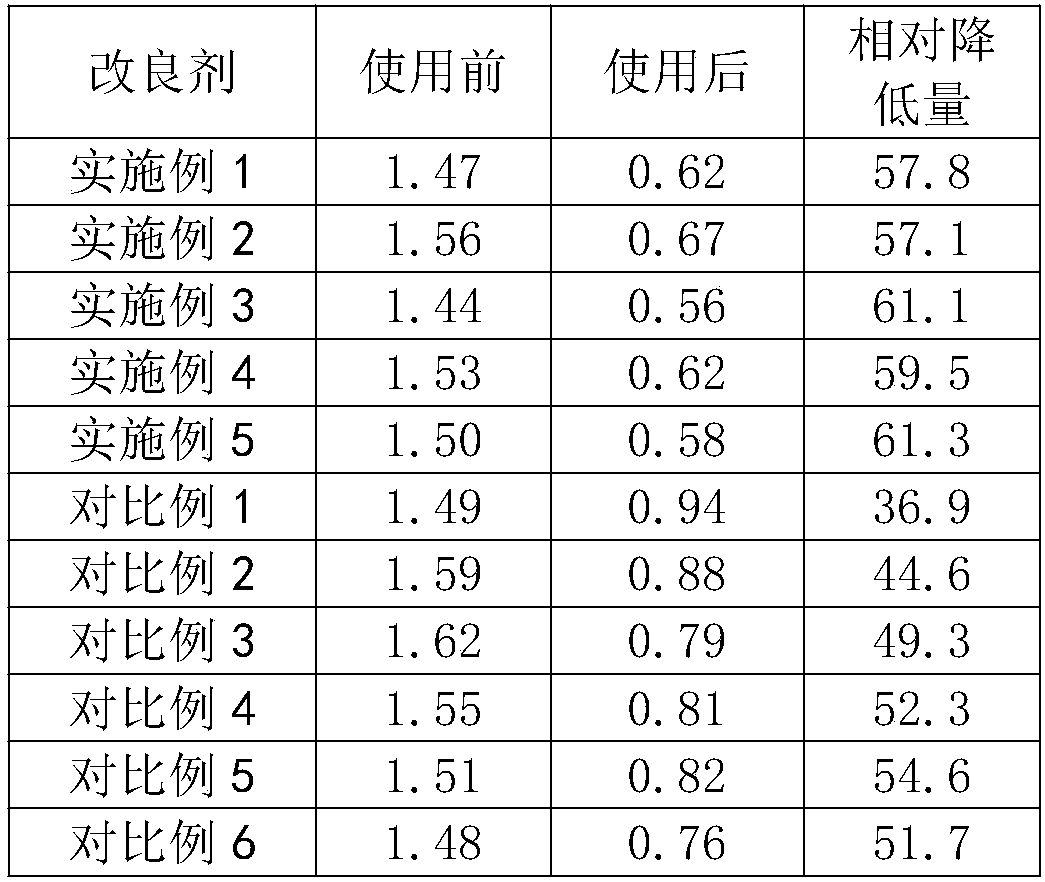Heavy metal pollution saline-alkali soil improver by adopting calcined phosphogypsum
A phosphogypsum and heavy metal technology is applied in the field of heavy metal pollution saline-alkali soil modifiers, which can solve problems such as unsatisfactory effect, not very wide application range, plant hormone pollution, etc., and achieves solving the lack of trace elements, improving physical and chemical properties, and good adsorption. Effect
- Summary
- Abstract
- Description
- Claims
- Application Information
AI Technical Summary
Problems solved by technology
Method used
Image
Examples
Embodiment 1
[0033] The heavy metal-contaminated saline-alkali soil improver using calcined phosphogypsum in this embodiment includes the following components in parts by weight: 5 parts of biochar, 35 parts of calcined phosphogypsum, 15 parts of honeycomb coal ash, 4 parts of modified zeolite, and 5 parts of expanded perlite , 3 parts of humic acid powder, 2 parts of citric acid slag, 1 part of polyaluminum iron silicate, 2 parts of diatomaceous earth, 0.5 part of calcium activator, 0.2 part of compound biological agent, 3 parts of organic compound fertilizer.
[0034] Wherein, the biochar is mixed with rice husk charcoal, straw charcoal and cow dung charcoal according to the mass ratio of 1:0.8:1.2, after being fully ground, it passes through a 80-120 mesh sieve, and the re-powder is mixed evenly; wherein, the straw charcoal Cow dung charcoal is made by anaerobic pyrolysis at 550°C for 30 minutes, while rice husk charcoal is waste gas produced after straw power generation.
[0035] Where...
Embodiment 2
[0047] The heavy metal-contaminated saline-alkali soil improver using calcined phosphogypsum in this embodiment includes the following components in parts by weight: 12 parts of biochar, 55 parts of calcined phosphogypsum, 25 parts of honeycomb coal ash, 10 parts of modified zeolite, and 8 parts of expanded perlite , 8 parts of humic acid powder, 6 parts of citric acid slag, 5 parts of polyaluminum iron silicate, 4 parts of diatomaceous earth, 1.5 parts of calcium activator, 0.6 part of compound biological agent, 7 parts of organic compound fertilizer.
[0048] Wherein, the biochar is mixed with rice husk charcoal, straw charcoal and cow dung charcoal according to the mass ratio of 1:0.8:1.2, after being fully ground, it passes through a 80-120 mesh sieve, and the re-powder is mixed evenly; wherein, the straw charcoal Cow dung charcoal is made by anaerobic pyrolysis at 550°C for 30 minutes, while rice husk charcoal is waste gas produced after straw power generation.
[0049] W...
Embodiment 3
[0061] The heavy metal-contaminated saline-alkali soil improver using calcined phosphogypsum in this embodiment includes the following components in parts by weight: 9 parts of biochar, 45 parts of calcined phosphogypsum, 20 parts of honeycomb coal ash, 7 parts of modified zeolite, and 6.5 parts of expanded perlite , 5.5 parts of humic acid powder, 4 parts of citric acid slag, 3 parts of polyaluminum iron silicate, 3 parts of diatomaceous earth, 1 part of calcium activator, 0.4 part of compound biological agent, and 5 parts of organic compound fertilizer.
[0062] Wherein, the biochar is mixed with rice husk charcoal, straw charcoal and cow dung charcoal according to the mass ratio of 1:0.8:1.2, after being fully ground, it passes through a 80-120 mesh sieve, and the re-powder is mixed evenly; wherein, the straw charcoal Cow dung charcoal is made by anaerobic pyrolysis at 550°C for 30 minutes, while rice husk charcoal is waste gas produced after straw power generation.
[0063...
PUM
 Login to View More
Login to View More Abstract
Description
Claims
Application Information
 Login to View More
Login to View More - R&D
- Intellectual Property
- Life Sciences
- Materials
- Tech Scout
- Unparalleled Data Quality
- Higher Quality Content
- 60% Fewer Hallucinations
Browse by: Latest US Patents, China's latest patents, Technical Efficacy Thesaurus, Application Domain, Technology Topic, Popular Technical Reports.
© 2025 PatSnap. All rights reserved.Legal|Privacy policy|Modern Slavery Act Transparency Statement|Sitemap|About US| Contact US: help@patsnap.com



